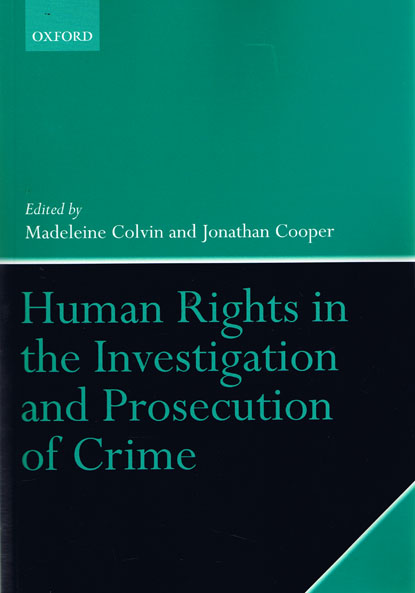
This new book is partly based on an earlier book, Criminal Justice, Police Powers and Human Rights (Blackstone Press 2001 ), which was published immediately after the Human Rights Act came into force. The subsequent developments in the criminal justice/human rights field have been so numerous, that a new dedicated text on the subject is required as opposed to just a new edition of the authors' previous book.
This new book provides a detailed and practical analysis of the impact of UK human rights law on the investigation and prosecution of crime. It deals systematically with the various stages of investigation, arrest and detention in police custody, court procedure, evidence, sentencing, and appeals. The narrative provides a comprehensive, in-depth examination of the Regulation of Investigatory Powers Act (RIPA), looking in detail at the relationship between human rights and police investigatory and surveillance powers.
The book is aimed directly at practitioners, and is logically divided into fifteen chapters, each dealing with a particular aspect of human rights in relation to the criminal process, including; the interception of communications, surveillance and covert human intelligence sources; arrest and detention; collection and retention of personnal data; bail; disclosure; fair trial, and sentencing.
The Appendices include the full text of the Human Rights Act 1998 and the Regulation of Investigatory Powers Act 2000.